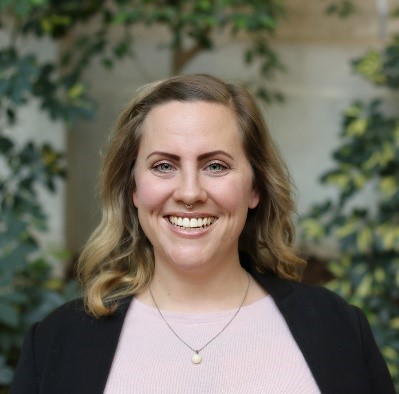
Erin Anderson is a PhD student at the Ontario Institute for Studies in Education, University of Toronto, who identifies as neurodivergent. Prior to beginning her doctoral work, Erin worked in student affairs in higher education where she used her lived experience to guide her practice of supporting students. Her research interests centre on issues of equity and access to higher education, including barriers to inclusion and marginalization within the postsecondary environment; identity development and belonging; mentorship; student development and engagement; mental health literacy and holistic wellness promotion; and designing inclusive and accessible learning environments.
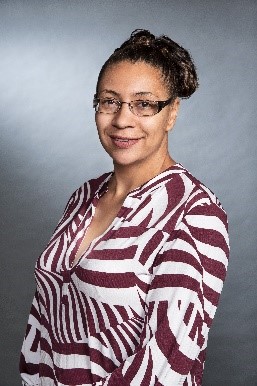
Liza Arnason has over 30 years of progressive leadership and teaching experience within the higher education sector, including the University of Toronto, where as Director and Assistant Dean of Student Life, Community Outreach, and International Experience she boldly fostered a student life community by advancing campus wide EDI initiatives, policies, and programs; championing the development and growth of the Imani Academic Mentorship Program. Currently serving as volunteer Chair of ASE Community Foundation for Black Canadians with Disabilities and University of Calgary Black Alumni Network, Liza's commitment to the principles of equity, "nothing without us”, and "for us, by us”, has always been the cornerstone of her work. Her depth of knowledge and expertise is informed by her lived experiences, research and policy initiatives, and work experience. Liza draws on critical pedagogy including Black Feminism, disability justice, and critical race theories to inform community-based research and policy change initiatives. Through collective leadership across Canada, Liz continues to design and advocate for new models and systems that will affect real change.
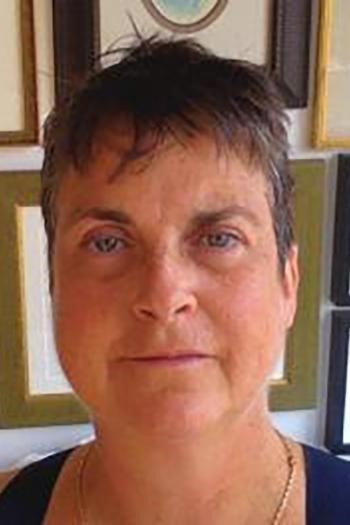
Chloë Atkins is an Associate Professor and Primary investigator of “The PROUD Project” on Under-employment & Disability (Social Sciences and Humanities Research Council of Canada, Department of National Defence Research Council of Canada, TechNation, Catherine & Frederik Eaton Family Foundation, UofT Global Teaching Grant & private donors). She writes about disability, bioethics, health equity, management of and difficult-to-diagnose illness, vulnerable identities, human rights, phenomenological and narrative scholarship. Chloë authored My Imaginary Illness (Cornell 2010) receiving 3 prizes: the American Journal of Nursing (2011) Book of the Year; 2011 May Cohen Lecture in Women’s Health, Faculty of Health Sciences, McMaster University; 5th Annual Sue MacRae Lecture on Ethics and Patient-Centred Care, UofToronto.
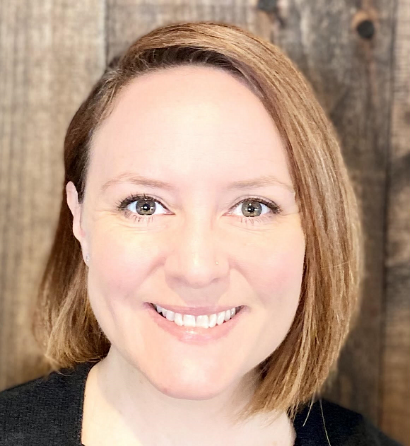
For 12 years, Darla Benton Kearney has supported students with disabilities as a Learning Strategist and an Accessibility Counsellor in the Accessible Learning Services department at Mohawk College. In 2016, Darla became the Teaching & Learning Consultant - Universal Design for Learning (UDL) in the Centre for Teaching & Learning Innovation tasked with facilitating the advancement of UDL at Mohawk College. In this role, Darla works collaboratively with faculty, as well as program and service areas, to support UDL research and college-wide implementation to ensure more inclusive, equitable and accessible learning.
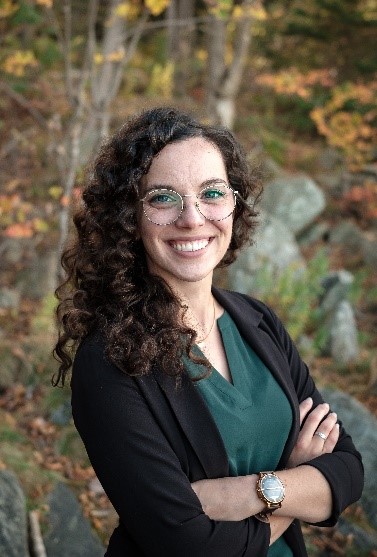
Kate Clark is a research professional with Dalhousie University’s School of Planning. She has been performing research in her current role since 2018 after earning her Master of Planning degree and becoming a founding member of the Planning for Equity, Accessibility, and Community Health (PEACH) Research Unit. Kate is a designated Rick Hansen Foundation Accessibility Certification (RHFAC) Professional and served as a member of the Goods and Services Working Group for Dalhousie University’s Accessibility Plan. Her recent research interests explore community-level indicators of accessibility (e.g., the availability of accessible housing, walk-and-rollability) and best practices for inclusive built environments. Kate has co-authored articles about the valuation of economic benefits of accessible spaces and on disability perspectives in planning scholarship.
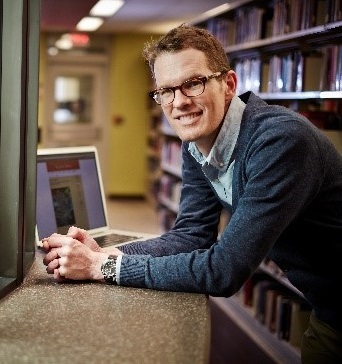
Jay Dolmage is Professor and Chair in the Department of English at the University of Waterloo and is committed to disability rights in his scholarship, service, and teaching. Prof. Dolmage’s work brings together rhetoric, writing, disability studies, and critical pedagogy. His first book, entitled Disability Rhetoric, was published with Syracuse University Press in 2014. Academic Ableism: Disability and Higher Education was published with Michigan University Press in 2017 and is available in an open-access version online. Disabled Upon Arrival: Eugenics, Immigration, and the Construction of Race and Disability was published in 2018 with Ohio State University Press. He is also the Founding Editor of the Canadian Journal of Disability Studies.
Olga Dosis is the founder of OD Consulting and and author of the Carswell Published Book Accessibility for Ontarians with Disabilities Act Implementation Guide. She has devoted over 25 years providing accessibility consulting nationally with a particular focus on workplace accommodations. Ms. Dosis joined George Brown College in 2002 and was appointed as the first Accessibility for Ontarians with Disabilities Act Coordinator in the college sector. Ms. Dosis spearheaded an Accessibility for Ontarians with Disabilities Act Committee for the college sector advancing several initiatives, including the development of guides and training modules. In addition, she was seconded as the Human Rights Advisor to the President at George Brown College, and continues to be recognized for her expertise in accessibility.

Catherine S. Fichten, Ph.D. (McGill) is a Professor in the Psychology Department at Dawson College (Montreal) and an Associate Professor in the Department of Psychiatry of McGill University. She co-directs the Adaptech Research Network / Réseau de Recherche Adaptech, a bilingual multidisciplinary research team that conducts research on higher education and disability. Her research interests include factors affecting the success of college and university students with various disabilities, with a focus on technologies. She is also a clinical psychologist and researcher at the Behavioural Psychotherapy and Research Unit of the Jewish General Hospital in Montreal.
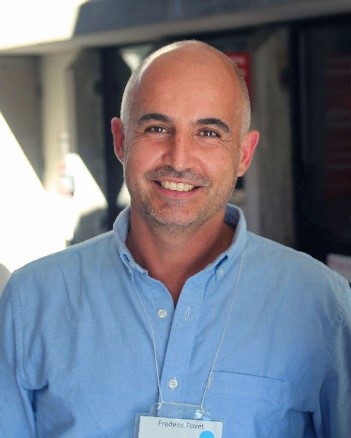
Frederic Fovet’s research and practice initially focused on the inclusion of students with social, emotional and behavioural difficulties (SEBD), and have later broadened to encompass all aspects of learner diversity and inclusion. While head of accessibility at McGill University, Frederic led a wide cross-campus drive for the implementation of Universal Design for Learning (UDL). He was the instigator and program chair of the first three Pan-Canadian Conferences on UDL, which took place in Montreal, Charlottetown and Victoria in 2015, 2017 and 2019 respectively. Frederic also acts as an inclusion and UDL consultant with K-12 schools and post-secondary institutions, both domestically and internationally. As a new faculty member at Thompson Rivers University, Frederic is deeply committed to the implementation of critical pedagogy which represents an important lens on his practice.
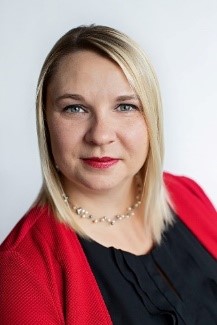
Sarah Gauen (she/her), Algonquin College’s Inclusion & Diversity Specialist, is an energetic and influential senior business partner with fifteen years dedicated experience in Equity, Diversity and Inclusion in the workplace. Her work has involved establishing diversity committees, employment equity and accessibility compliance, designing training programs, managing diversity initiatives, and conducting research. She serves the Post Secondary EDI practitioner community as the Vice-President of the Canadian Association for the Prevention of Discrimination and Harassment in Higher Education (CAPDHHE), as well as the co-Chair of the Employment Accessibility Resource Network (EARN) Leadership Committee with the United Way Eastern Ontario. Her credentials include an undergraduate degree from the University of Guelph and a Masters degree from the University of Cape Town.
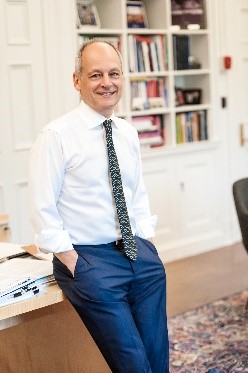
Professor Meric Gertler is one of the world’s foremost authorities on cities, innovation and economic change. He has advised governments in Canada, the US, and Europe, and such international agencies as the OECD and EU. He is a director of the MaRS Discovery District; a trustee of Toronto’s Hospital for Sick Children; and chair of Universities Canada. He is a fellow of the Royal Society of Canada, and a member of the Order of Canada.

Jodie Glean-Mitchell is an award-winning anti-racism educator who has dedicated her career to developing educational programming in the field of anti-racism, equity and inclusion. Jodie attained her Masters of Arts in Educational Studies from Concordia University and is presently, completing her PhD degree in Education at York University with her research focusing on the experiences of equity practitioners advancing racial equity and inclusion in postsecondary institutions. In 2017, Jodie was the recipient of the Leadership in Learning Award from the Canadian Association for the Prevention of Discrimination and Harassment in Higher Education, and in 2020, she received the Harry Jerome Diversity Award. Jodie co-developed and is a course instructor of the Transformative Equity, Inclusion & Belonging Leadership Certificate Program at Humber College and she currently serves as the Executive Director, Equity, Diversity and Inclusion at the University of Toronto.
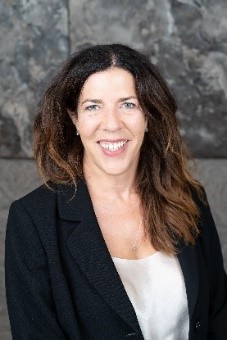
Professor Kelly Hannah-Moffat is Vice-President, People Strategy, Equity & Culture (PSEC) and a full Professor in Criminology at the Centre of Criminology and Socio-Legal Studies and cross-appointed to the department of Sociology. As Vice-President, PSEC, she has a primary mandate to promote teaching, learning, and working environments that promote safety, wellness, and the conditions of belonging for all members of the U of T community. Her portfolio oversees High Risk and Crisis Management, Equity, Diversity and Inclusion as well as employment and labour relations with 28 unionized employee groups, and institution-wide employee recruitment and retention efforts; compensation, benefits, and pension; and HR technology and innovation.

Karima Hashmani is the Chief Inclusion Officer at Metrolinx and she is building equity, diversity, and inclusion (EDI) capacity across the organization to create an equitable workplace and a culture of belonging. This includes embedding EDI into Metrolinx’s work - from workplace practices to how it engages and works with communities. Karima has more than two decades of experience addressing complex EDI and human rights issues within the education, social housing, and non-profit sectors. Most recently, Karima was the Executive Director, Equity, Diversity, and Inclusion at the University of Toronto where she focused on addressing systemic change within policies and practices on accessibility, sexual & gender diversity and anti-racism. While at U of T, Karima co-convened the National Dialogues and Action and the Scarborough Charter on Anti-Black Racism and Black Inclusion in Canadian Higher Education. Prior to joining the University of Toronto, Karima spent 12 years at Toronto Community Housing, holding many roles in human rights, equity, and community development. Karima has dedicated her career to amplifying voices, advancing systemic change, and fostering inclusive environments.
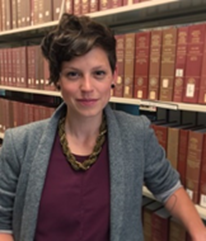
Cassandra Hartblay is Assistant Professor in the Department of Health & Society, Director of the Centre for Global Disability Studies at the University of Toronto Scarborough, as well as a member of the University of Toronto graduate faculty in the Department of Anthropology and the Centre for European, Russian & Eurasian Studies. Her research considers how the concept of disability access travels globally and takes on different meanings across cultural contexts. She is author of I WAS NEVER ALONE or Oporniki: An Ethnographic Play on Disability in Russia (University of Toronto Press 2020), and a recipient of the Zola Award for Disability Studies. She has served as a board member of the Society for Disability Studies and as a steering committee member of the Disability Research Interest Group of the American Anthropological Association. Her scholarship has appeared in American Ethnologist, Disability Studies Quarterly, and South Atlantic Quarterly, among other publications.
Esther Ignagni draws from work, academic and lived experiences with disability to inform her current role as director and associate professor at the School of Disability Studies, Faculty of Community Services, Toronto Metropolitan University. Her current research explores the relationships between death, dying and disability in the advent of Canadian Medical Assistance in Dying legislation. She regularly draws on analysis of institutional ableism in her service across University-wide committees.
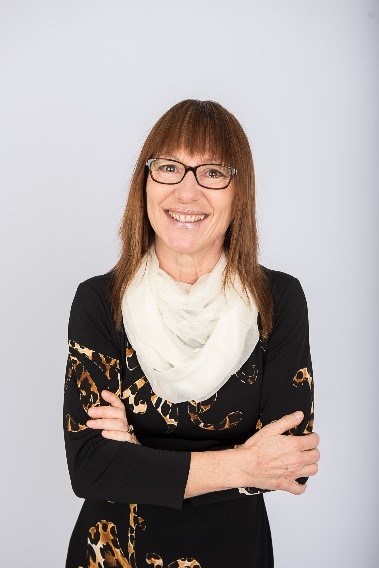
Bonnie Lashewicz, PhD. Professor and Graduate Program Director, is part of Community Rehabilitation & Disability Studies in the Cumming School of Medicine. Bonnie leads a program of qualitative and mixed methods research about responsibilities and identities in relation to an array of disability, mental health disorder and/or chronic disease diagnoses. Bonnie’s program is built on concepts such as resilience, busyness and moral distress. Her projects include studies of workplace mental health with a focus on how gender and culture intersect with work and mental health.
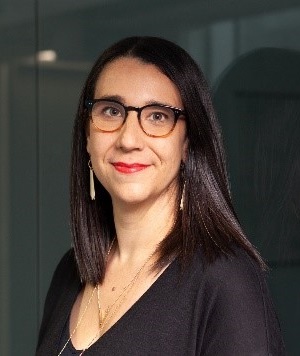
Anne McGuire is an associate professor and director of the program for Critical Studies in Equity and Solidarity at UofT, where she teaches courses in critical disability studies. She is the author of War on Autism: On the Cultural Logic of Normative Violence (2016, University of Michigan Press), which received the 2016 Tobin Siebers Prize for Disability Studies in the Humanities. She is the co-author of an award-winning picture book about disability justice and collective access, We Move Together (AK Press, 2021). Anne received the 2016 June Larkin Pedagogy Award and the 2018-2019 UofT Early Career Teaching Award for her work.
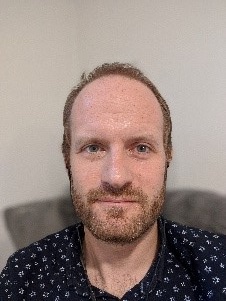
Ben Poynton was drawn to his work by an interest in the philosophical underpinnings of human rights and how they support social justice. In addition to his role as AODA Officer within the Division of People Strategy, Equity & Culture at UofT, Ben served as a member of the provincial committee establishing new AODA standards in the postsecondary sector and has been instrumental in advancing the university’s AODA commitments through the application of an intersectional lens and a community-based approach. Ben provides support and guidance to the university’s senior leadership on Accessibility, EDI and Universal Design while simultaneously working to help members of the university community understand our legal obligations, how accessibility is broadly defined, and how we can create an institution that values disability and the changes in perspective it brings.

Cherilyn Scobie Edwards is a leader with extensive knowledge with respect to EDI within the education, community, and policing sectors. The current Director of the Equity, Diversity, and Inclusion Office at UTSC, she held leadership positions in the Toronto District School Board as a Vice-Principal, Principal, and Centrally Assigned Principal for Equity and School Improvement. Cherilyn’s leadership in the areas of EDI is best evidenced through her consultant work. As a Director and co-founder of Equity Connections Inc. she supports organizations in building inclusive environments for all.

Dr. Mahadeo Sukhai is the world’s first congenitally blind geneticist. Mahadeo is Vice-President Research & International Affairs and Chief Accessibility Officer for the CNIB (Canadian National Institute for the Blind), having previously served as a researcher at the University Health Network in Toronto. Dr. Sukhai also holds adjunct faculty appointments at Queens University (Kingston, ON), OCAD University (Toronto) and Ontario Tech University (Oshawa, ON). Dr. Sukhai is the Chair of the Employment Technical Committee for Accessibility Standards Canada, as well as the External Co-Chair of the CIHR Expert Advisory Committee on Accessibility and Systemic Ableism. In his role at CNIB, Mahadeo leads a significant research program focused on social determinants of health and inclusion for people living with sight loss in Canada. As Chief Accessibility Officer, Mahadeo also leads organizational culture change initiatives on accessibility and inclusion for CNIB.
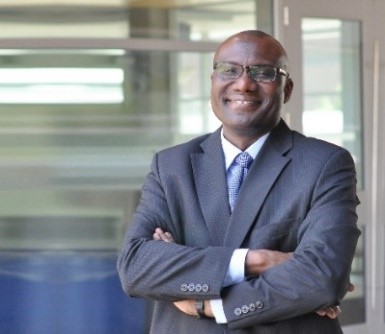
Wisdom Tettey is vice-president of the University of Toronto and principal of the University of Toronto Scarborough, as well as a professor of political science and development studies. His research interests include media, politics, and civic engagement in Africa; transnational citizenship and the African diaspora; political economy of globalization and information technology in Africa; African higher education and the knowledge society. He is an elected Fellow of the Ghana Academy of Arts and Sciences and currently serves on the Board of CivicAction and on the advisory/editorial boards of various academic publications. Professor Tettey is Chair of the Scarborough Charter Steering Committee and Convenor of the National Dialogues.